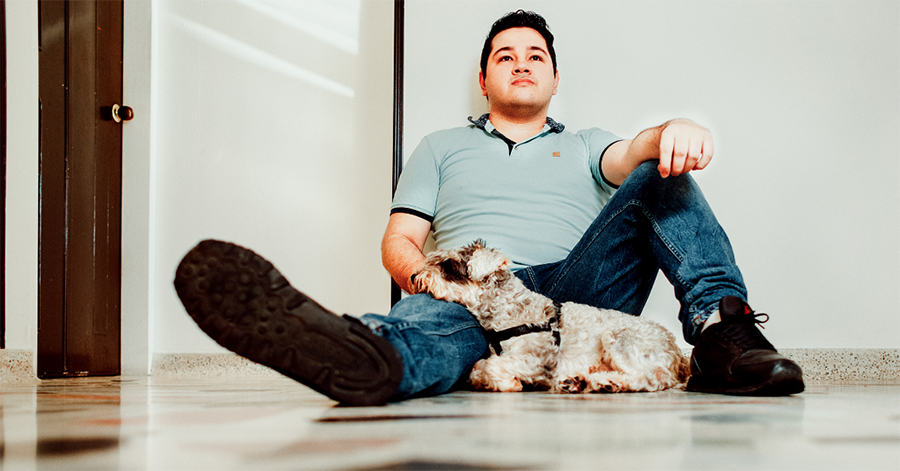
18 Nov Pedicures and Paradoxes: Being Realistic about Self-Care as a Caregiver
As a full-time caregiver, I can always tell whether someone has been a caregiver by how that person discusses the idea of “self-care.” Always. Someone who has actually been a caregiver will shrug and sigh and laugh and acknowledge that “self-care” has become a bit of a buzzword in our culture and has become divorced from any sense of what is realistic in the life of a caregiver.
Self-care is essential to a caregiver’s physical and mental health. But self-care can’t become just one more weight on a caregiver’s shoulders.
When pop culture reinforces the idea that self-care must consist of spa days, lengthy baths, vacations, and other luxuries, caregivers cannot help but feel excluded and frustrated, especially when money and time are crucially tight. “How can I make time for a spa day, when I barely have time for a shower?”
Despite not understanding what caregivers have on their plate, friends and family apply pressure: “You have to take care of yourself first.” “It’s like on a plane: you have to put your own oxygen mask on before helping others.” This advice only takes a caregiver so far, because it may be an unrealistic expectation of what self-care should look like.
So: how can we, as caregivers, rejuvenate ourselves when we have so little time to spare?
- Keep it small and simple. Look for short-and-sweet experiences: watch a sunset; light a candle; walk to the mailbox; doodle on a notepad; wash your face; squeeze your pet; take a couple of extra minutes in the shower; etc. These are all refreshing ways to add meaningful breaks to your day that take a few minutes or less, and cost little or nothing. For me, the self-care break that has saved my mood hundreds of times has been simply driving the scenic route home from town when running errands. Instead of the highway route, I take the backroads, and soak in the trees and fresh air. I’m accomplishing the errands either way, and fitting in a profound moment of me-time.
- Create a positive association. Many of our stressors as caregivers involve accompanying our loved ones to medical appointments. Depending upon your loved one’s abilities and limitations, maybe you can create a new tradition or fun detour that you can associate just with appointment days. Anything that is new, or different, or interesting for you and your loved one could work. A specific place to eat, or a pretty place to drive by, or a particular store or restaurant or park, etc.
- Keep it punctuated. Take a stretch break, then cook. Take a walk, then start the laundry. Have your favorite snack, then do your paperwork. This will probably also help you to feel more productive. Each individual chore will feel lighter. I lose a great deal of time when I have so much to do that I can’t decide what I should be doing at any given moment.
- Accept that there will never be an empty to-do list. Knowing there will always be something to do has saved me from applying undue pressure on myself.
- Strive for meaningful balance. Completing your work or your chores can motivate you to take time to intentionally relax, and vice versa. Deliberately enjoy your downtime when you have the chance to take it. If you feel guilty about not working at the moment you are relaxing, remind yourself that it is physically impossible to do it all, especially at one time.
- Be prepared to tell people what you need. It is difficult for caregivers to ask friends or family for help. But they may ask you what they can do to help. Keep a list of tasks and assign each person who asks to help you, a task from that list. For example: do you need help mowing your lawn? Do you need lunch delivered on Saturday, because that day is busy? Do you need prescriptions picked up? Think about the chores or errands that give you the biggest headaches and pose them as possibilities to the well-meaning people in your life who reach out. Keep the list on you, since you never know who you will run into.
- Self-care doesn’t have to be “fun.” Sometimes, the best self-care routine is just knocking out some tasks from your to-do list, so that they are no longer on your mind.
“Self-care” isn’t self-care at all if it isn’t a relief to a particular caregiver, or doesn’t consider a particular caregiver’s unique needs. As it turns out, spa days are not one-size-fits-all.
Danielle Pardue is the Legal Fellow for Triage Cancer and a patient advocate. She is the primary caregiver for her mom, who has Stage IV lung cancer, and her dad, who has several chronic illnesses.
About Triage Cancer
Triage Cancer is a national, nonprofit providing free education to people diagnosed with cancer, advocates, caregivers, and health care professionals on cancer-related legal and practical issues. Through events, materials, and resources, Triage Cancer is dedicated to helping people move beyond diagnosis. For more on the topics discussed in this blog, see our Caregiving Resources and our new, Practical Guide to Cancer Rights for Caregivers.


